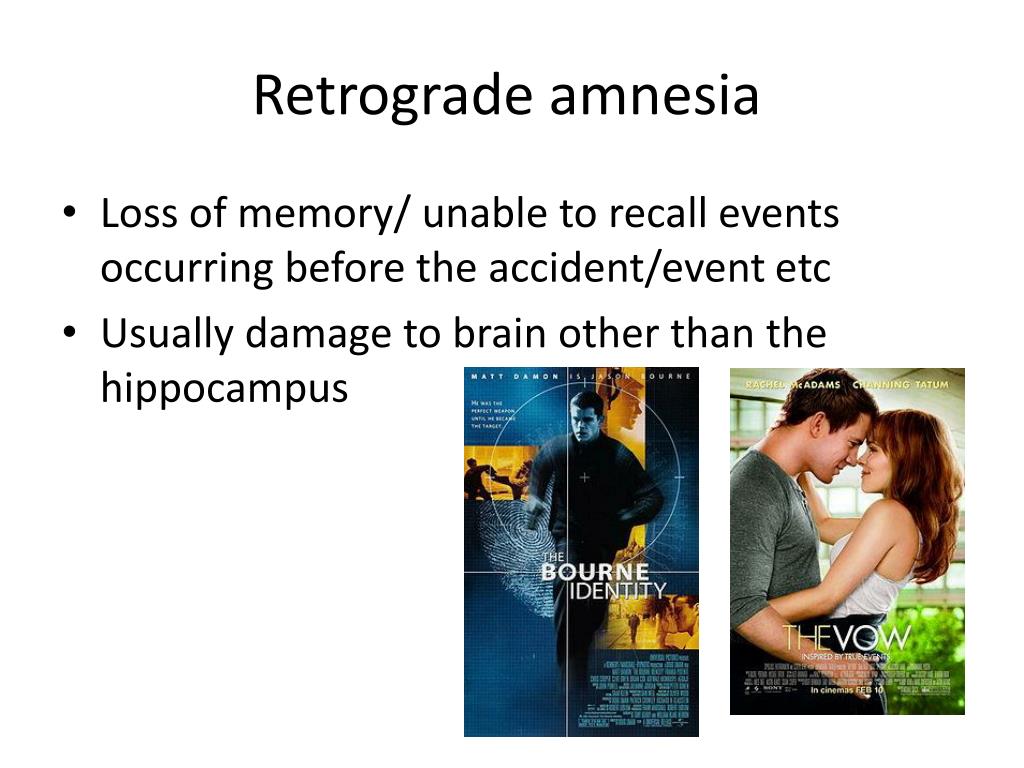

#Anterograde amnesia and retrograde amnesia how to#
For example, knowing how to do things, or becoming habituated to a stimulus are forms of implicit memory. Implicit memory involves knowledge we gain from experience but that is not easily expressible. We can easily tell someone what we ate for breakfast, or what city is the capital of France. For example, memories of facts or episodes from our lives are explicit memories. Explicit memories are conscious and easy to verbalize. Next, we will test two different forms of long-term memory: explicit and implicit memory. First, we will test short-term or working memory, which is the process we use to keep information in mind temporarily. In this video, we will test a patient with medial temporal lobe damage on a series of memory tasks designed to distinguish between different forms of memory. These cases can be informative as to how memory is organized in the brain, and how different systems support different kinds of memories. Patients who have damage to the structures of the medial temporal lobe, including the hippocampus, amygdala, and the surrounding cortices, often have severe deficits in the formation of certain kinds of memories.

Anterograde amnesia can result from damage to structures in the brain that are involved in the formation of new memories. This can be distinguished from retrograde amnesia, which is the loss of old memories. Gimbel-University of Southern CaliforniaĪnterograde amnesia is the loss of the ability to form new memories.


 0 kommentar(er)
0 kommentar(er)
